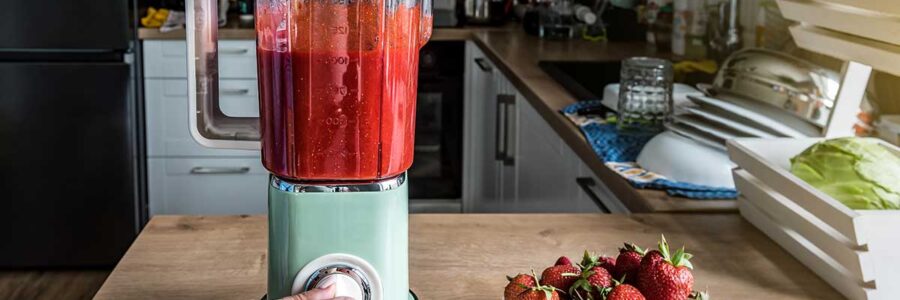You might be eating all the right foods—organic vegetables, antioxidant-rich fruits, nutrient-dense superfoods—but what about the tools you use to prepare those foods? If you’re still using a plastic blender, it could undermine your efforts to maintain a healthy lifestyle. Recent studies are bringing to light the dangers of microplastics and chemicals leaching from plastic, which extends to the kitchen tools we use daily.
The Hidden Dangers of Plastic Blenders
When you blend ingredients in a plastic jar, especially harder items like ice, nuts, or frozen fruit, the force of the blades can cause small pieces of plastic to break off and end up in your food. These microplastics are so tiny that they go unnoticed, but the health implications are significant. Scientists have found that these microplastics are absorbed into our bodies, accumulating in our tissues and organs.
The more we are exposed to these contaminants, the more they accumulate, and research suggests they may contribute to various health problems, from inflammation to neurological disorders. Microplastics have been detected in the bloodstream and brain, raising concerns about their long-term effects on human health.[1]
Better Blending Solutions: Stainless Steel and Glass
To reduce exposure to these harmful plastics, consider switching to a blender made from safer materials, such as stainless steel or glass. These materials do not leach toxins into your food, even when exposed to heat, acids, or abrasive ingredients. Stainless steel, in particular, is highly durable and resists corrosion, making it a great option for blending even though ingredients like nuts or frozen fruit. Meanwhile, glass offers a non-toxic, non-reactive surface perfect for blending smoothies, soups, or sauces.
You Don’t Have to Replace the Whole Blender
Replacing a kitchen appliance can feel overwhelming, but many blender brands offer an easy solution. You can often swap out just the plastic container for a stainless steel or glass one, so you don’t need to buy a whole new blender to start making healthier choices.
Take Action to Protect Your Health
While it’s easy to focus on the ingredients you’re blending, the materials used in your kitchen appliances are just as important for your overall health. Eliminating plastic from your daily routine is a step toward reducing exposure to harmful chemicals and supporting long-term wellness.
Every action to limit toxins in your environment, including swapping out your plastic blender, brings you closer to optimal health. This simple switch protects your food from contamination and supports a healthier lifestyle. By upgrading to a stainless steel or glass blender, you’re making a proactive choice for better health—one blend at a time.
References:
- Lee, Yongjin, et al. “Health Effects of Microplastic Exposures: Current Issues and Perspectives in South Korea.” Yonsei Medical Journal, vol. 64, no. 5, May 2023, pp. 301–08. PubMed Central


